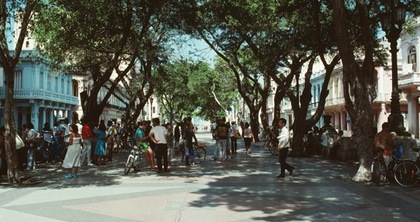When emotions are heated or the stakes are high, resolving interpersonal conflict can seem impossible. Resolution attempts can reinforce negative feelings when conflict is approached as a problem—something’s wrong so someone must be at fault. Cheryl Picard, director of the Centre for Conflict Education and Research (CCER) based in the department of law, has a different approach: she views conflict as an opportunity for parties to learn about themselves and others.
“Insight mediation helps people begin to understand enough about each other that they cease to regard each other as a threat to cooperation and begin to believe they can either live with their differences or resolve them,” says Picard, PhD/00. “When conflict is framed as a learning process, people are more willing to acquire skills to prevent or resolve conflict.”
Picard has been providing conflict resolution and mediation training in Cuba since 2001, when she and colleague Rena Ramkay were first invited by the Centro Félix Varela, one of the few non-governmental organizations in the socialist country. They developed and delivered a training program that developed competence and built capacity in conflict theory and resolution, trained a smaller group of participants in mediation, and taught the first cohort of trainers to deliver the program to reduce dependence on the visiting scholars.

A town square in old Havana.
“Cubans are highly educated, and the concepts of conflict resolution and mediation are known to them, but culturally, conflict is suppressed or dealt with in a top-down way,” says Picard, who brought her insight mediation techniques to Cuba. “As a result, people haven’t developed the communication skills to deal with interpersonal conflict at home, in the workplace or in the community. At this grassroots level, people are excited to learn new skills so they can talk things out in a safe way that leads to good decision making.”
Picard hopes the CCER can expand the project with the Centro Félix Varela, working with organizations like Oxfam Canada to take the program across Cuba as part of a larger international effort known as the Culture of Peace project. As Cuba changes—and change inevitability brings conflict—Picard says she wants people at the community level to be equipped to deal with conflict before it gets out of hand.
Next ..